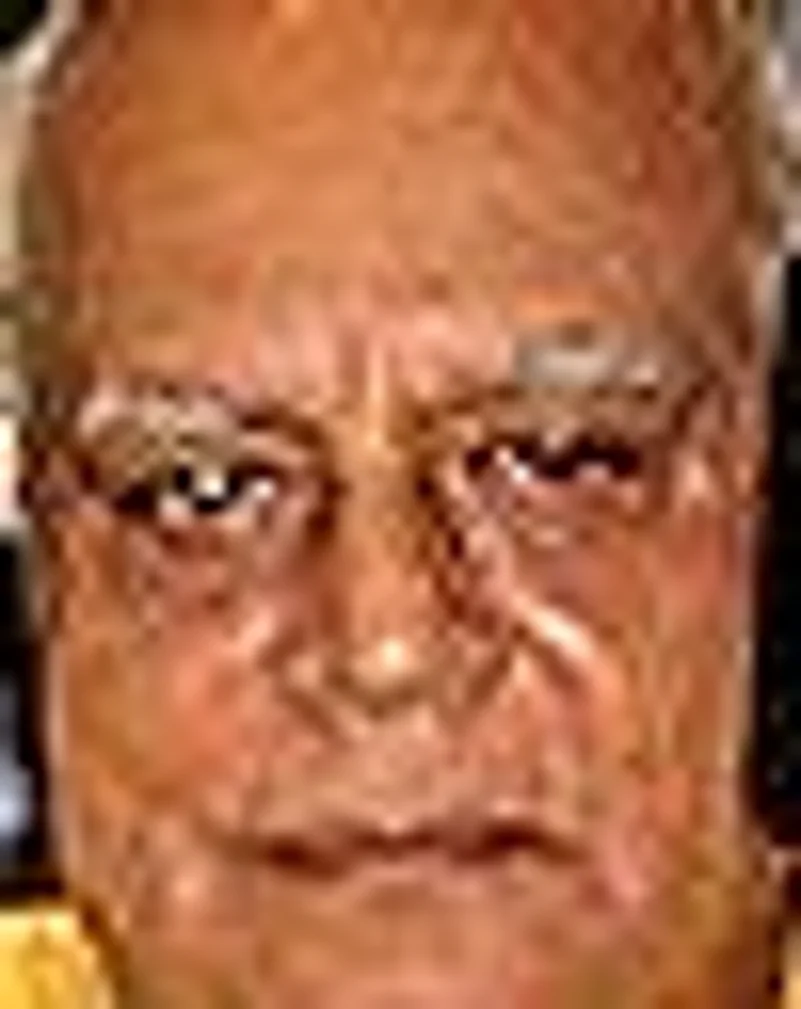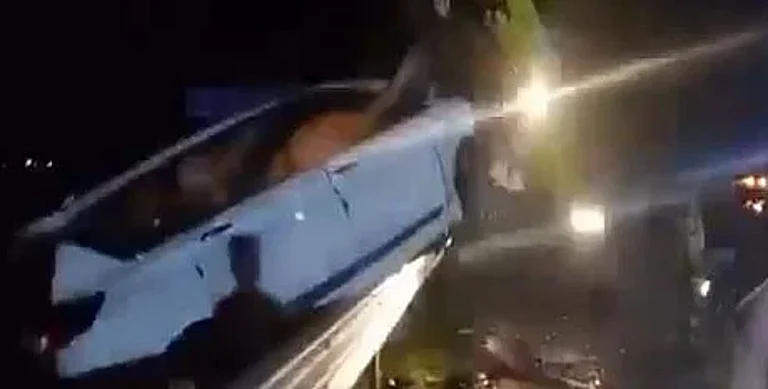Transcript of BBC Hindi special programme Aapki Baat BBC Ke Saath withformer chief of Intelligence Bureau (IB) Arun Bhagat , former chief of police inMumbai M.N. Singh, and social activist Teesta Setalvad on whether India isserious about the safety of its citizens
Nagendar Sharma: Are governments in India serious about security of its citizens?

Arun Bhagat: I think it is the right time for the government to bring a change in its policy. Till now we have been following a policy of defence with tolerance, but it has to change now. I am being told that all this would change now and maybe we would have to follow a policy of aggressive defence, which is the best deterrent at the moment in my view and must be the priority for discussionsamong policy makers.

M.N. Singh: Unfortunately, I would have to agree with the question asked by you, as the question of militant attacks has notreceived the seriousness it requires. We have been citing local reasons for such attacks, which, I am afraid, is not correct. It is a jehadi campaign which has been launched by certain misguided youth. It would require a long term strategy to counter thismenace. We would have to make serious efforts to bring these youth into the mainstream and end their indoctrination at the earliest.

Teesta Setalwad: Had the successive Indian governments been sincere and seriousbout the security of its citizens, neither the large-scale riots that took place in Gujarat in 2002,nor the Babri Masjid demolition in 1992, nor the recent bomb blasts in Mumbaiwould have happened. It is totally wrong to say that local conditions did not have anything to do with the recentblasts. If that were not the case, then why were no blasts in Mumbai before 1993? It is also clear that Pakistan’s ISI is playing a role in fomenting trouble in various parts of the country, but there are elements within the country alsowho help such a cause by isolating a community which requires our support and confidence. Weneed to be serious in totality.
BBC listener from Mumbai: I would like to know why India as a country is unable to defend itself. We remained silent when ourParliament was attacked, and are still silent after the latest attack on Mumbai, which is the second in this city in three years.Whether it is Pakistan or Bangladesh, why are we unable to convince the international community that these nations are out to destroy our country?Why can’t we have an approach like the US or Israel?
Arun Bhagat: One thing is clear that India would have to change its policy.One of the options could be what you are suggesting, that is – aggression in defending yourself. However, it would have to be dealt withcaution, as we are laying blame on a foreign country. We should take it up at the international level and remind the international community about its outstanding commitments. Let me tell you that the OIC (Organisation of Islamic Countries) in its conference in the year 2000 had condemned terrorism in strong terms and had said that terrorists are defaming Islam. In my view it is the right time to remind these organisations about what is happening.The 2000 conference resolution of OIC said that none of the member states would allow any acts of terror from its soil nor would any member provide shelter to any of the wanted men. Now isn’t it a fact that Dawood Ibrahim, who is wanted in 1993 Mumbai serial blasts, is in Pakistan? His daughter was married in a public ceremony to Javed Miandad’s son. Is it possible thatthe whereabouts of a man whose family is in Pakistan would not be known to that country?
BBC listener from Riyadh: I want to know why our country India has got into the habit of pointing an accusing finger at its neighbours without conclusive proofs.The home secretary of the country said a day after the blasts that Lashkar-e-Toiba and SIMI are suspected of being behind theblasts. Why did he give such a statement when the investigations were still on?And how can Mr M.N. Singh say that jehadi campaign is behind such blasts?
M. N. Singh: Well, the 1993 blasts were a reaction to the demolition of Babri Masjid and the riots thatfollowed: I agree with that. However the 2003 blasts and the recent blasts in Mumbai had no immediate provocation and I reiterate that there were no local reasons behind these blasts.I say so because I have seen that Hindus and Muslims of Mumbai want to live in peace. The arrests made in the past have shown that Kashmiri Muslim youths and, in some cases, even foreigners, have been found to be involved in disturbances in Mumbai. I agree that Babri demolition was a barbaric crime and has left behind a wound, which can never be healed. Similarly, Gujarat riots were unpardonable and cannot be condoned. However, if we continue to debate the action and reaction, we would never to able to find a solution. We should be clear that terror attacks are a global phenomenon and the approach would have to be global and cities like Mumbai would continue to be on the terror map. I am clear that we are vulnerable to future attacks also and the only solution is to maintain harmony among all sections of society and give confidence to all communities in the country.
Teesta Setalwad : Nobody is denying the fact that Jehadi movement is funded monetarily and inspirit in many parts of the world. However my question to both senior police officials is that why before 1993 such activities did not find support in any part of the country except in Kashmir or Northeast?It started happening after 1993 when a particular community was subjected to state repression, which led to a sense of alienation in this community, and a small section in this community began to realise that they are being discriminated against and have no stakes left in this country.The resonance of jehadi mentality in a small sections of Muslims was because they felt they would not get justice in the country. This is a wrong notion, nobody should support this and agree with such a notion, and needs to beaddressed, but this could only be done by ensuring justice for victims of large scale systematic violence like the Gujarat riots.
BBC listener from Akola (Maharasthtra): Why is the Indian intelligence machinery found wanting after every attack? Why have we failed to anticipate such attacks and save numerous innocent lives?
Arun Bhagat : The problem is that expectations from intelligence agencies are unrealistic. You are talking about the intelligence failure in Mumbai blasts, however look at the realistic picture – I can say from my experience that planning for these attackscould have been carried out anywhere, monetary assistance for sure would have come from outside the country,and only the execution was carried out in Mumbai. Never can such attacks be predicted. Look at the world-level – from New York to London, Spain, Egypt, Indonesia anywhere – what is required here in all the places I have mentionedis tactical intelligence. Sometimes you may succeed in preventing the attacks, at times you may not.Therefore I would not agree with this common talk of intelligence failure. If someone points out a case of strategic failure, then I would accept this argument.
BBC listener from Thane: I do not think there was any intelligence failure in Mumbai blasts. I think it had a political connection. Look at the sequence of events. A few days before the blasts,the statue of Bal Thackeray’s wife was desecrated, a little earlier there was a big arms-haul in Aurangabad and communal violence in Bhiwandi. Don’t you think lack of political will to act led to Mumbai blasts?
M. N. Singh: I agree, definitely, it is a case of lack of political will.Look, for some reason, the political class is afraid to speak the truth. I would go to the extent of saying that political parties are aware of the elements who are behind these blasts, but due to political considerations they are unable to speak out against these. I am clear that Hindus and Muslims in Mumbai, as also in other parts of the country, want peace. However it is the Hindu fanatics and the Jehadi elements who want to disturb the peace in the country. It is very important to keep such mischievous elements under a tight check, otherwise such a dangerous drift would continue and so would the attacks. A two-pronged strategy is required, one at the internationallevel - we should be an active participant in the global war against terror- and another at the domestic level - we would have to show the political will to sternly deal with such dangerous trends.
Teesta Setalwad : I fully agree with the point that there is lack of political will. Had it been there to defend secularism and punish the criminal elements responsible for killing of innocents, then our state of affairs would not have beenwhat it is today. What we need to do is to ensure that no innocent is tortured unnecessarily so that he turns to extremist activities, at the same time there must be exemplary punishment to those who take the lives of innocentpeople -- but while doing so care must be taken that cases such as shooting of Khwaja Ahmed in Mumbai are not repeated.
BBC listener from Florida: Why can’t India respond to terror attacks in the way Israel does? We know where terror camps exist. Our neighbouring country wants proof of its involvement in the attacks, which we have in plenty. If America could change its entire policy after 9/11 and Britain after 7/7, why can’t we?
Arun Bhagat : Well, the time has to come for the government to answer why it can’t act to completely destroy the infrastructure of terror. However, we must also bear in mind that a big and responsible country like ours cannot act in the way some other countries likeIsrael do. Besides, what has Israel achieved? Look at the facts: Israel has attacked its neighbours many times after it was struckby violence, but it has provided no solution, instead it has led to escalation of tension in the region. I think all options must be looked into after Mumbai blasts, but we have to be carefulas well.

























